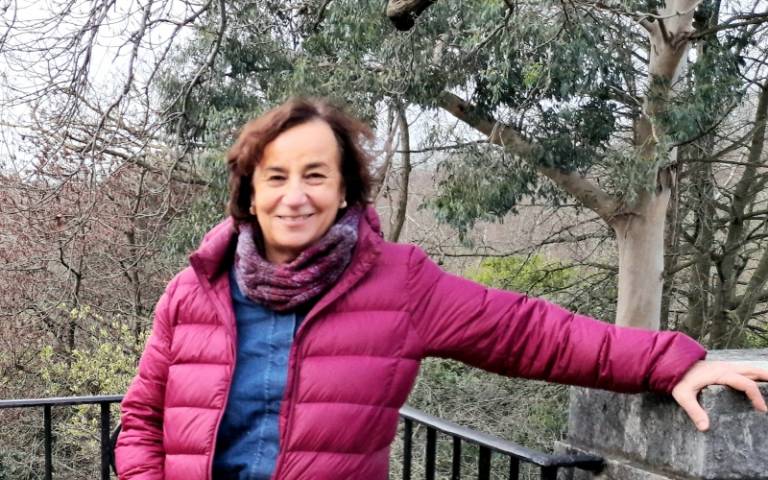Spotlight on Dr Penny Bernstock
19 January 2022
Meet Dr Penny Bernstock who recently joined the IGP as Honorary Senior Research Fellow. Here, find out more about her role and research interests

“A prosperous society is one that prioritises and enables the wellbeing and security of all members of society, as compared to excessive wealth for the few.”
Dr Penny Bernstock's research focus is on housing and employment on the Queen Elizabeth Olympic Park, where she is exploring ways to promote good growth/inclusive regeneration that provides sustainable livelihoods for existing low-income communities in the legacy boroughs.
Here, she talks about her role at the IGP, her work on affordable housing, and what prosperity means to her.
Can you tell us about the work you will be doing with the IGP?
I am working with IGP on a conference about Olympic legacies alongside ProCol UK lead Dr Saffron Woodcraft and Urban Lab and plan to develop some research with colleagues at IGP.
What does prosperity mean to you?
A prosperous society is one that prioritises and enables the wellbeing and security of all members of society, as compared to excessive wealth for the few.
What do you think about the legacy of the Olympic and Paralympic Games and where do you think we are in terms of achieving that?
When we won the bid to host the games it was claimed that east London would be regenerated for the entire benefit of everyone who lives there, serving as a model for social inclusion’. The Olympic Park (now named the Queen Elizabeth Olympic Park) has been transformed in the post games period, venues have been recycled for post-games use, a new cultural and educational district is under construction and thousands of new homes have been built or under construction. Paradoxically despite this physical transformation there has been a failure to realise an inclusive legacy for local communities, despite this being its key raison deter. If we take housing for example, there has been an abandonment of the original legacy commitment that there would be 50% affordable on the park. Most of the housing being built on the park is exclusive market housing, and then much of what is described as affordable is not genuinely affordable, therefore existing residents are spatially excluded and the key beneficiaries are professional groups from outside. More recently the LLDC have increased levels of affordable housing and established a 'good growth' zone on the park, these are important and positive developments. However, much more needs to be done to ensure that at least 50% of housing on the park is genuinely affordable. There is also scope for more experimental bottom-up community- led approaches to both housing and employment creation.
How is IGP’s recently launched longitudinal study of prosperity key to assessing the Olympic legacy?
There is a lack of data enabling us to draw robust conclusions about the impact of the Olympic Legacy on existing communities. Therefore, this is a very important piece of work that will provide crucial data to enable us to understand the impact overtime.
Another of your research interests is in affordable housing. Could you tell us more about that and how this is a critical part of urban regeneration?
I am currently working on two projects. The first is exploring the type of affordable housing being built on the Olympic Park and in particular the trend to shared ownership housing, that tends to benefit professional groups rather than those in severe housing stress. The second project is exploring the impact of inadequate housing on educational experiences.
The supply of decent affordable housing is a fundamental part of any inclusive regeneration strategy. Currently policy makers tend to focus on either employment of housing, however, we need joined up policy solutions that address both housing and employment needs simultaneously.
Do you have a recent book, film or podcast that you would recommend?
I would recommend the Caring City by Juliet Davies. Bristol University Press | The Caring City - Ethics of Urban Design, By Juliet Davis
Find Dr Bernstock's bio in our honorary staff section
 Close
Close

